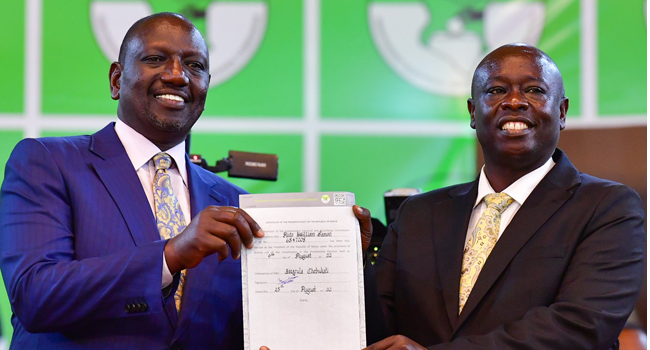NAIROBI; Kenya’s Supreme Court unanimously affirmed William Ruto’s declaration as the victor of the country’s presidential elections, rejecting opposition candidate Raila Odinga’s assertions that the electoral process was tainted by rigging.
The election, according to Chief Justice Martha Koome, was free, fair, transparent, and credible. Raila Odinga, joined by seven other petitions, demanded that the election results be annulled due to widespread fraud. Odinga claimed that the electoral commission’s chairman, Wafula Chebukati, staged a civilian coup, that election technology was hacked, and that votes were taken away from him and given to his opponent.
After three days of case hearing, a seven-judge court ruled that the eight petitions calling for the elections to be canceled were “without merit”.
The Supreme Court had identified 9 major issues including reliefs that should be given to the court. CJ Martha Koome while reading the judgment dismissed all of them in support of IEBC hence upholding Ruto’s win.
The court-ordered partial recount discovered procedural errors but no vote tally differences significant enough to alter the final result.
This year’s election passed peacefully and the now official election of William Ruto will see him get sworn in on Tuesday, 13th September 2022.
Following a political upset in 2018 with Uhuru Kenyatta, Deputy President William Ruto used the expression “hustlers versus dynasty” for the 2022 election. Kenya’s departing president, Uhuru Kenyatta, had pledged to support Ruto’s candidacy for the next presidential election in 2022. Kenyatta then shifted in March 2018. After a private meeting, he brought his longtime political rival Raila Odinga and the two officially sealed their new cooperation with the now-famous “handshake.”
Scorned and seeking to strengthen his position against the incumbent president, Ruto referred to Kenyatta’s type of politics as “dynasty,” in contrast to his own hustler character, which he has long championed.
Following his confirmation as Kenya’s boss for the next 5 years, William Ruto faces an uphill task of rebuilding the economy, creating employment and paying of Kenya’s debt, which is now close to hitting the KSh 9 trillion mark.
During the launch of his manifesto dubbed ‘The Plan’, William Ruto promised to invest at least KSh250 billion over five years, beginning in 2023, to boost agriculture and food security, to provide KSh50 billion annually to provide MSMEs with reliable access to credit, to build 250,000 new affordable houses each year through public-private partnerships, and to establish a settlement fund to acquire land and resettle up to one million landless families.
Ruto also promised mandatory health insurance (NHIF), the construction of new level 6 hospitals in six new locations and the hiring of an initial 20,000 health care workers, the construction of a 100,000-kilometer fiber optic connectivity network, and the closing of the current teacher shortage gap within two fiscal years.


